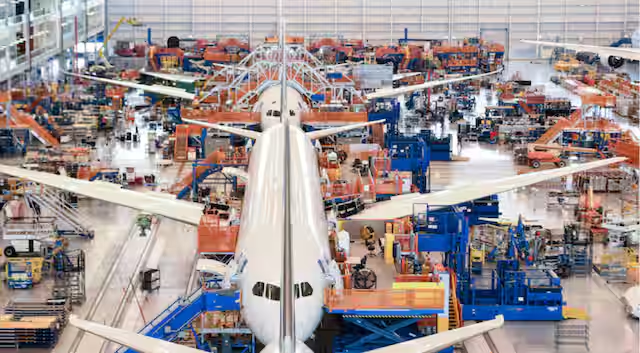Boeing modifies 787 production schedules as a result of supplier scarcity
According to an internal letter acquired by Reuters, Boeing, the US aircraft manufacturer, expects a delayed ramp-up in the production and delivery of its 787 widebody planes owing to shortages of critical components from suppliers.

While acknowledging difficulties in procuring certain components, Scott Stocker, vice president and general manager of the 787 program, said Boeing plans to progressively boost output to meet high demand.
In the message, which was sent to employees at Boeing’s South Carolina plant, the business reaffirmed its commitment to order fulfillment while also mitigating supply chain interruptions.
In spite of these difficulties, Boeing is still committed to overcoming manufacturing obstacles in order to meet market demand.
The Federal Aviation Administration (FAA) is keeping a careful eye on Boeing’s problems with specific components in order to guarantee the safety and compliance of every Boeing 787 aircraft.
Reiterating its authority, the FAA ensures strict monitoring to maintain safety requirements by granting airworthiness certifications for each 787 built.
This guarantee was given in response to increased industry scrutiny of Boeing’s production procedures, especially with regard to the widebody 777 and 787 aircraft.
In the latter quarter of 2023, Boeing’s 787 production pace was five aircraft per month, demonstrating continued attempts to optimize operations despite persistent supply chain difficulties.
But new information from Boeing engineer Sam Salehpour, who testified before the US Senate, has drawn further attention to potential flaws in the production process.
Salehpour expressed doubts over the 787 Dreamliner’s shimming, a procedure that is essential for preserving structural integrity.
Although Boeing denied that earlier 787 aircraft had significant fatigue problems, these assertions have raised questions about the company’s quality control procedures.
The investigation goes beyond the 787 program; Boeing is also dealing with difficulties related to its 737 MAX manufacturing.
The production of 737 MAX aircraft has decreased as a result of factory inspections and operating pauses in the state of Washington, as regulatory oversight heightens in the wake of safety problems.
Significantly, earlier this year, a mid-air panel burst on a relatively new 737 MAX 9 raised questions about Boeing’s production standards and safety culture in general.
Boeing endeavors to maintain its reputation for safety and dependability by addressing supply chain disruptions and improving production procedures, even while these problems persist.






